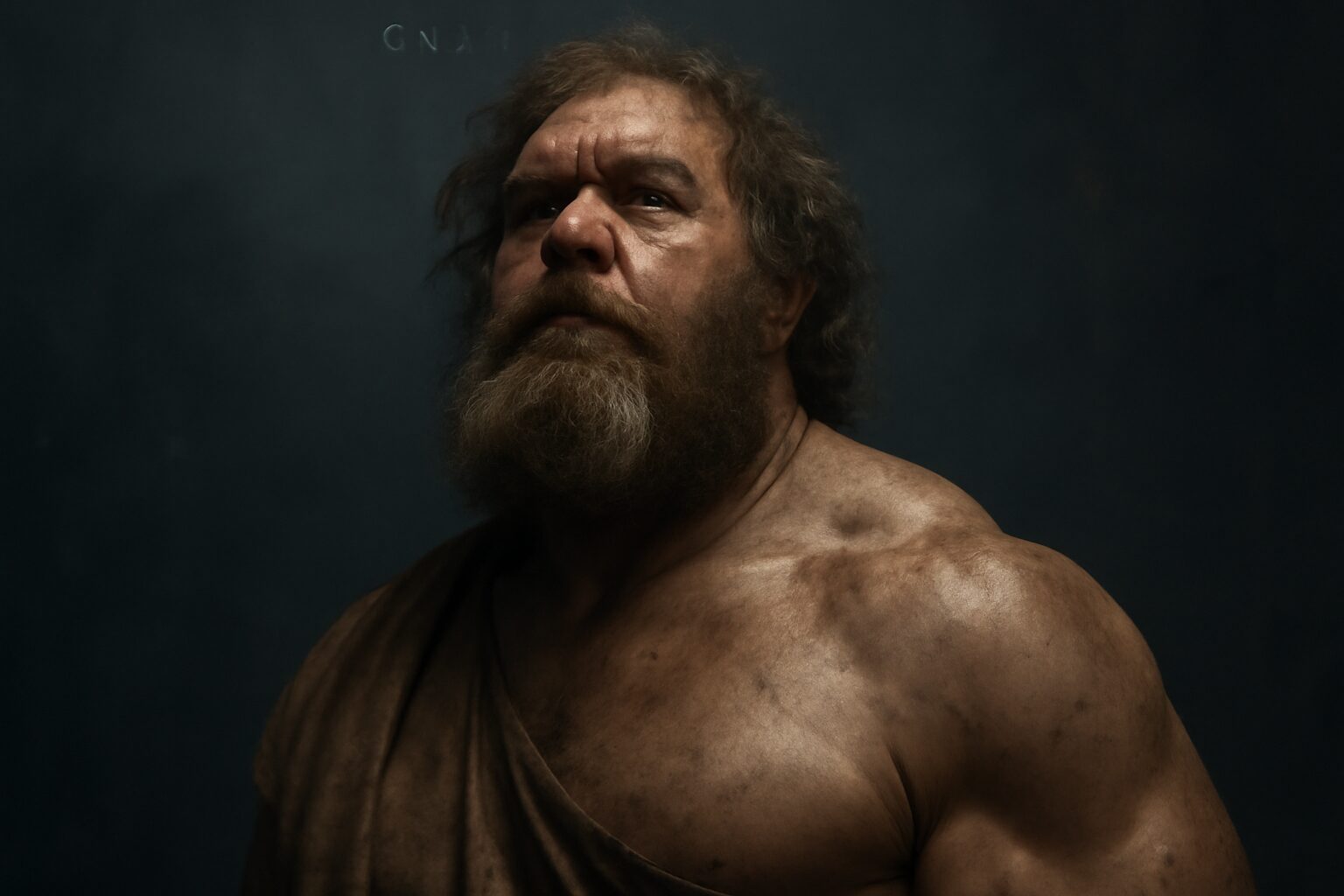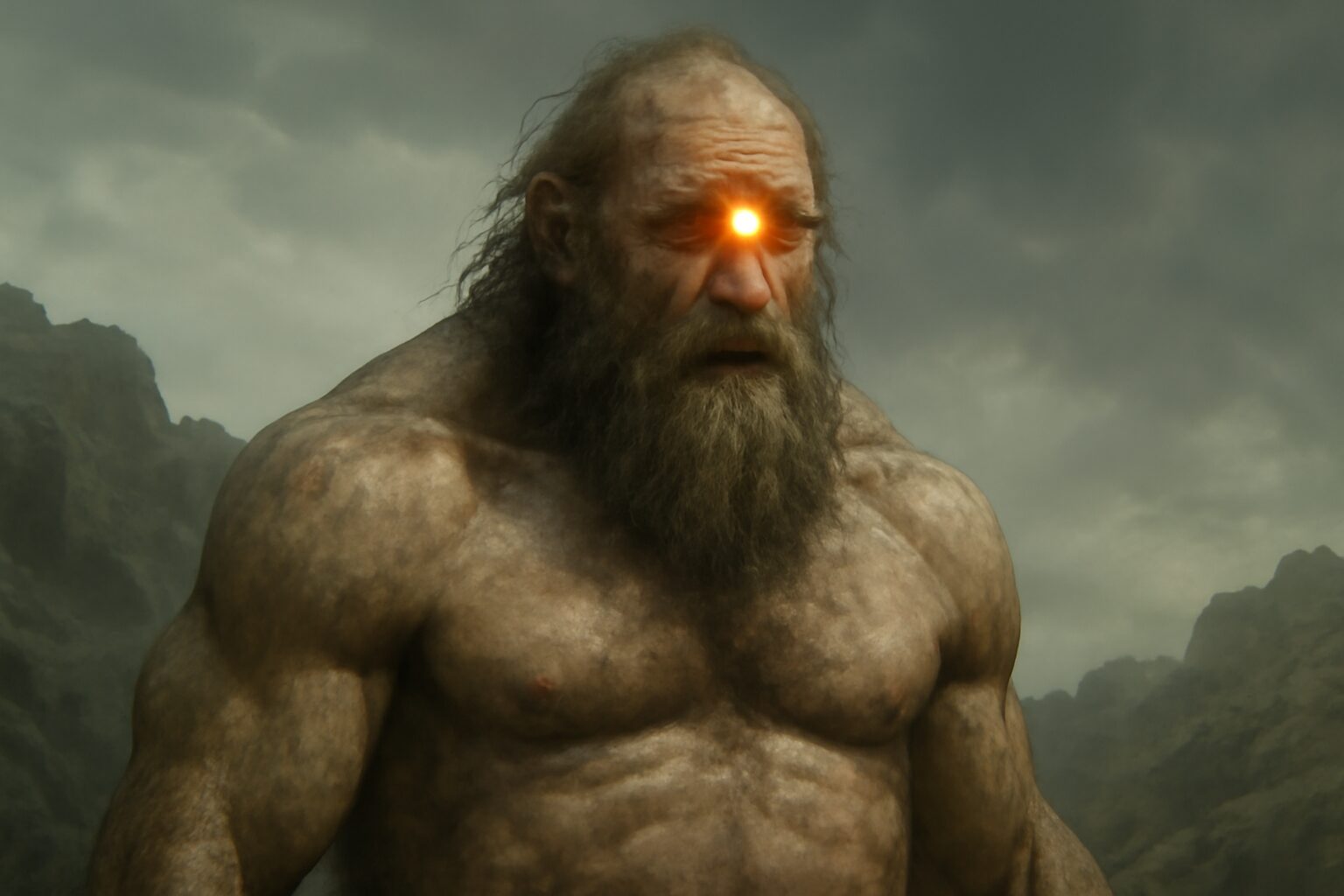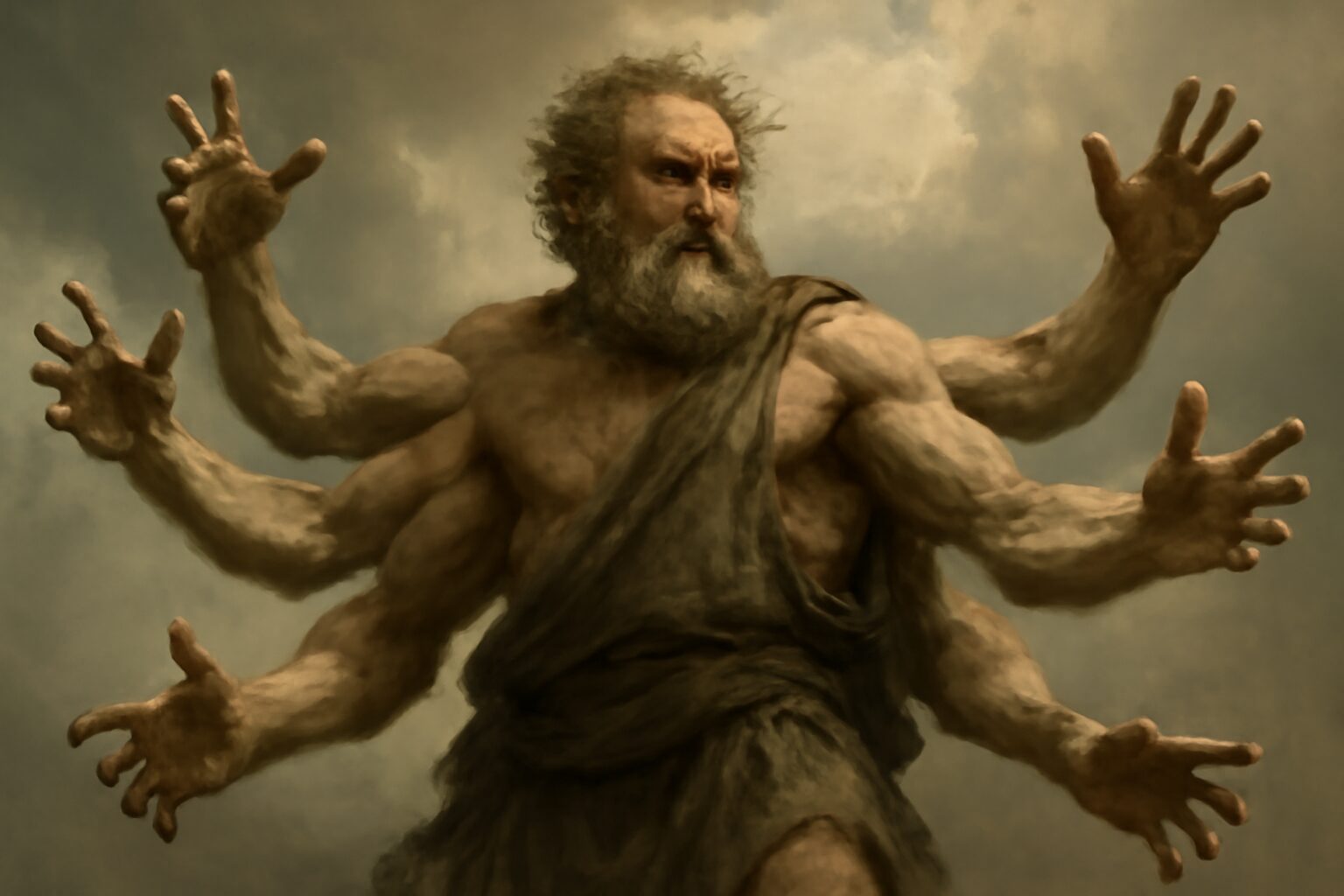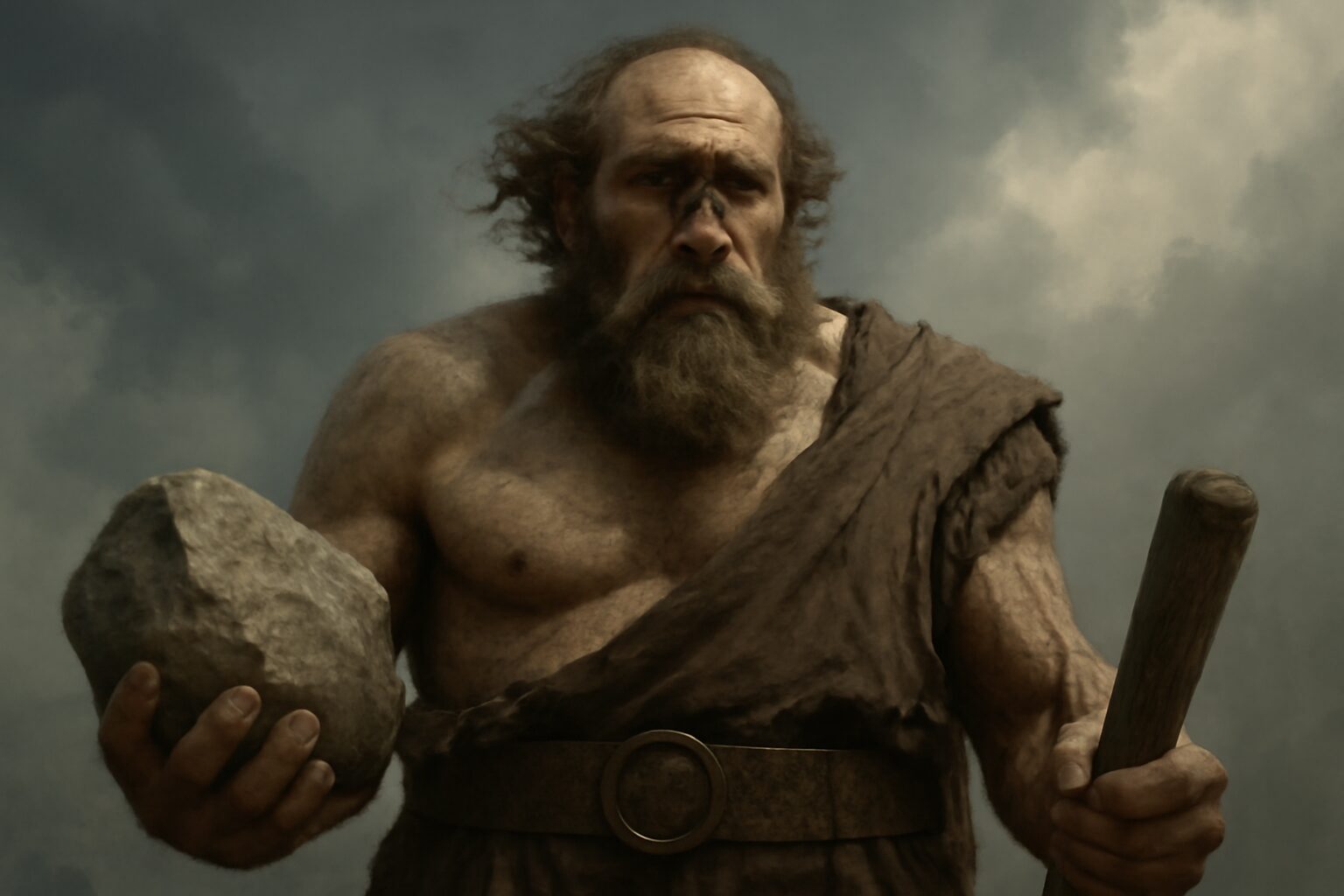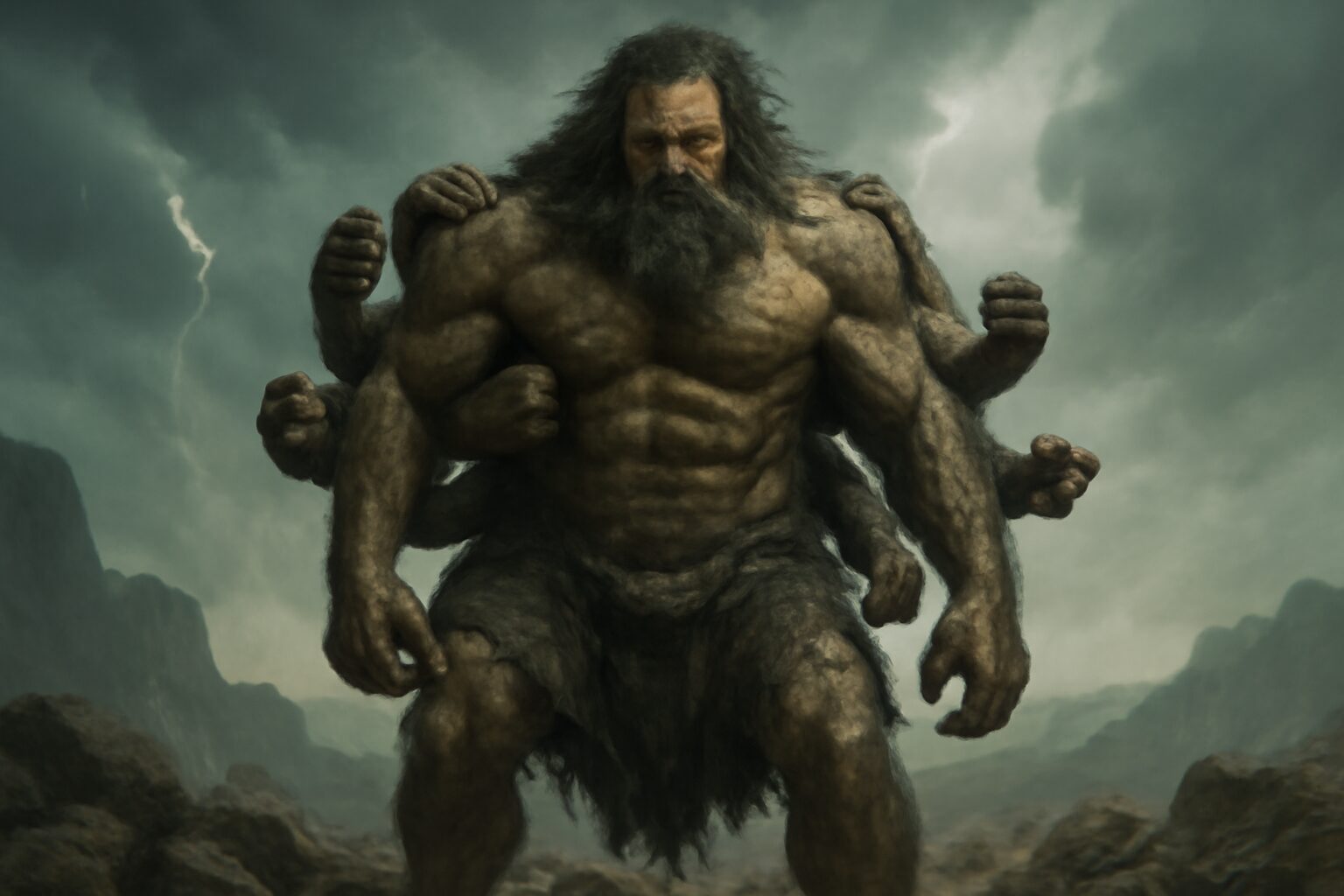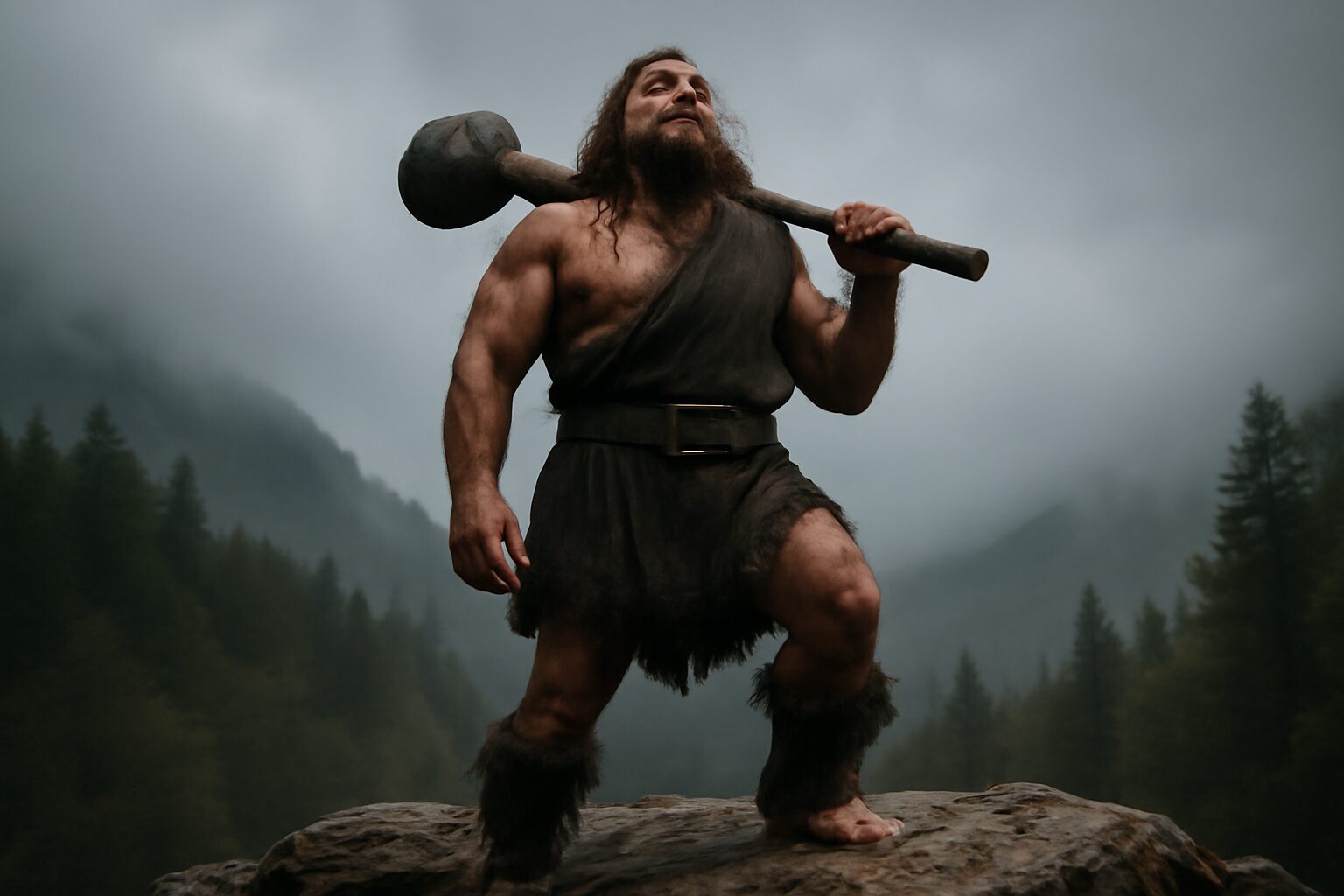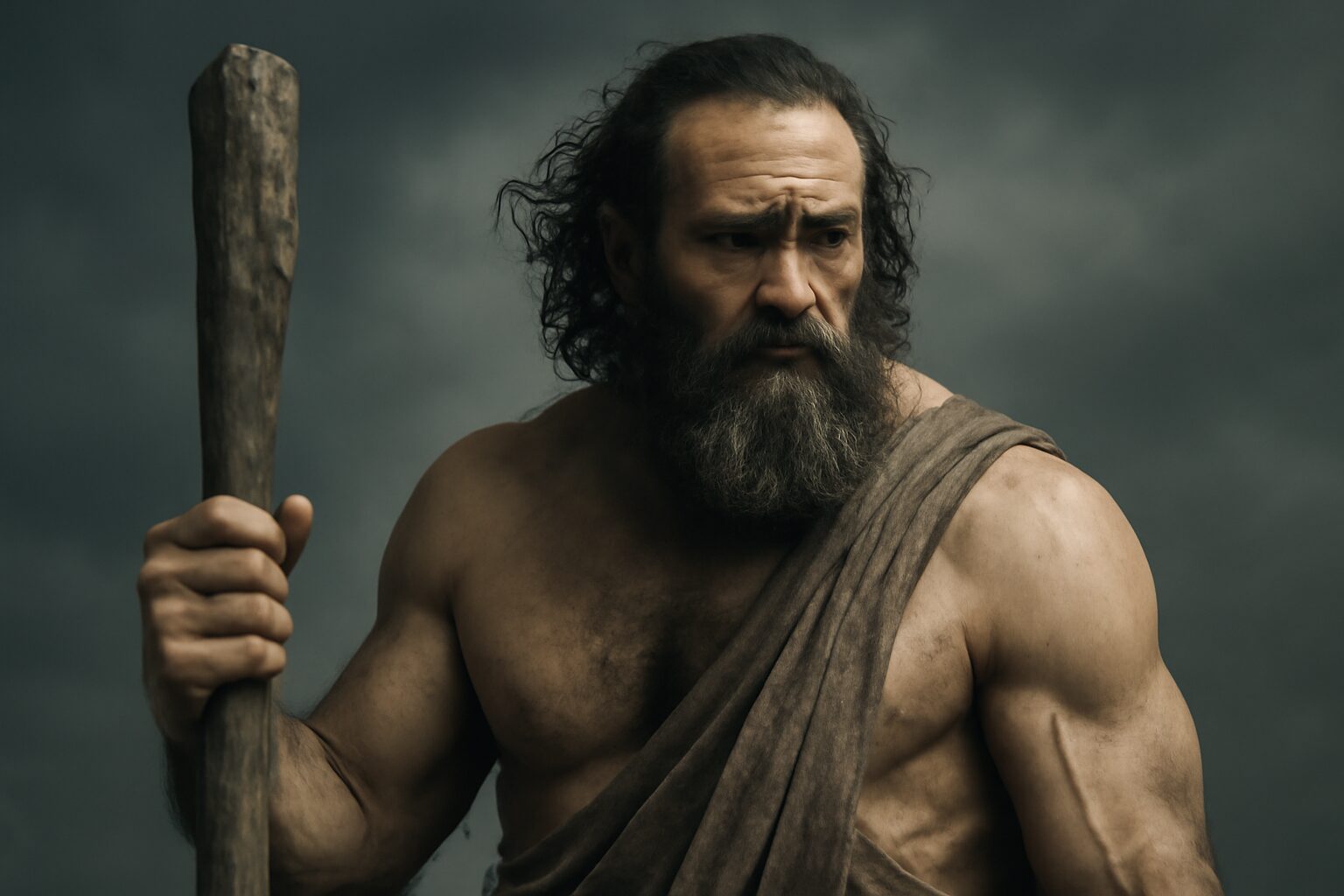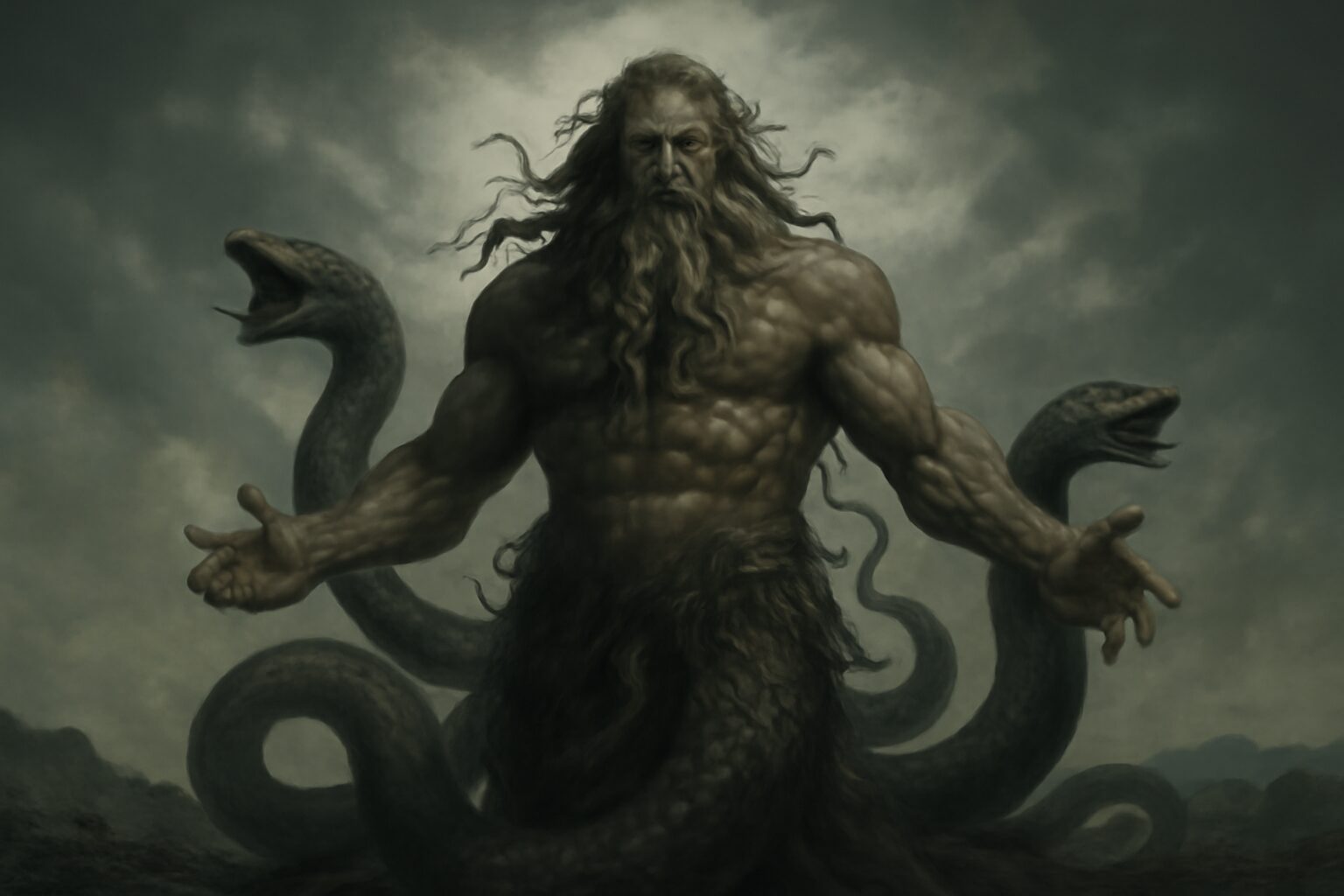Gyges: The Hundred-Handed Giant of Greek Mythology
In Greek mythology, Gyges (also spelled Gyes) was one of the three Hecatoncheires, or "Hundred-Handed Ones"—monstrous giants with fifty heads and one hundred arms each. Along with his brothers Briareus and Cottus, Gyges played a crucial role in the cosmic battles that shaped the ancient Greek understanding of the universe.
Origins and Role in the Titanomachy
Born to the primordial deities Uranus (Sky) and Gaia (Earth), Gyges and his brothers were so fearsome that Uranus imprisoned them in the depths of Tartarus. Later, when the Titan Cronus overthrew Uranus, he kept the Hecatoncheires locked away. It was only when Zeus waged war against the Titans (the Titanomachy) that Gyges and his brothers were freed to tip the scales in the Olympians' favor.
Their immense strength and countless arms allowed them to hurl massive boulders at the Titans, overwhelming them with sheer force. After the Olympians' victory, Gyges and his brothers were rewarded by being made guardians of Tartarus, ensuring the Titans remained imprisoned.
Powers and Significance
Gyges' most defining trait was his hundred arms, which granted him unparalleled might in battle. Some myths suggest he could wield multiple weapons simultaneously, making him nearly invincible in combat. Alongside his brothers, he symbolized raw, untamed power—necessary for maintaining cosmic order.
Though not as frequently mentioned as other Greek deities, Gyges' role was vital in establishing Zeus' reign. His presence reinforced the idea that even the gods relied on ancient, primordial forces to secure their dominance.
Relationships and Legacy
Gyges' most notable relationships were with his family—his brothers Briareus (later known as a trusted ally of Zeus) and Cottus, as well as his parents Uranus and Gaia. Unlike many Greek gods, he had no recorded consorts or offspring, as his role was primarily that of a warrior and guardian.
His legacy endured in later myths, where the Hecatoncheires were sometimes invoked as symbols of overwhelming force. In some traditions, Gyges was also associated with the sea, possibly linking him to other ancient sea deities.
While Gyges may not be as famous as Zeus or Poseidon, his contribution to the divine order of Greek mythology was undeniable—a reminder that even the mightiest rulers depended on the strength of ancient, primordial beings.
Alternative Names for Gyges
God Name: Gyes (Roman)
An alternative Roman name for Gyges, derived from the same Greek origin but with a slight variation in spelling and pronunciation.
God Name: Gygu0113s (Greek)
An alternative Greek spelling of Gyges, often used in ancient texts to refer to the same deity.
God Name: Gyges the Hundred-Handed (Greek)
A descriptive epithet for Gyges, highlighting his association with the Hecatoncheires (Hundred-Handed Ones) in Greek mythology.
God Name: Gyas (Roman)
A Roman variant of Gyges, sometimes used in Latin texts to refer to the same mythological figure.
Tales about Gyges
The Healing of Gyges: Aceso's Gift
In the ancient lands of Lydia, Gyges, a humble shepherd, stumbled upon a cavern after a violent earthquake. Inside, he found a golden ring that granted him invisibility. But with great power came great peril—while testing the ring, he accidentally wounded himself on a jagged rock, a deep gash that refused to heal.
A Divine Intervention
As infection set in and hope dwindled, Aceso, the goddess of the healing process, appeared to him in a dream. She whispered ancient remedies and guided his hand to gather herbs under the moonlight. Following her divine instructions, Gyges applied a poultice of yarrow and honey, and within days, his wound began to mend cleanly and completely.
"Healing is not merely the absence of injury, but the restoration of wholeness," Aceso’s voice echoed in his mind, teaching him that true power lies in renewal, not concealment.
Gyges and the River God: Achelous' Challenge
After ascending to become king of Lydia, Gyges faced a severe drought that threatened his kingdom. Desperate, he journeyed to the great river Achelous to plead for aid. There, Achelous, the shape-shifting river god, emerged from the waters, skeptical of mortals and their ambitions.
A Test of Strength and Wit
Achelous, in the form of a mighty bull, challenged Gyges to a contest: "Prove your worth, king of men! Tame the wild currents of my spirit, and I shall grant your people water." Using his cunning rather than force, Gyges diverted smaller streams into irrigation channels, demonstrating respect for the river’s flow. Impressed, Achelous roared with laughter, causing fresh springs to burst forth across Lydia.
From that day, Gyges ruled with a lesson from the god: that nature’s power must be harmonized with, not dominated.
Frequently Asked Questions
Who is Gyges in Greek mythology?
Gyges is a lesser-known figure in Greek mythology, often associated with the concept of invisibility. He is sometimes mentioned as a shepherd who found a magical ring that could make him invisible, a story later referenced by philosophers like Plato to discuss morality and power.
What are the Gigantes in Greek mythology?
The Gigantes, or Giants, were a race of enormous and monstrous beings in Greek mythology. They were born from Gaia (Earth) and the blood of Uranus (Sky) and famously waged war against the Olympian gods in the Gigantomachy, a battle symbolizing the struggle between order and chaos.
Why are the Gigantes important in Greek myths?
The Gigantes represent primal forces of nature and chaos, challenging the authority of the Olympian gods. Their defeat by the gods symbolizes the triumph of order and civilization over wild, untamed forces, reinforcing the Greeks' cultural values of harmony and divine rule.
What lessons can we learn from the story of Gyges' ring?
The story of Gyges' ring explores themes of power, morality, and accountability. It asks whether people would act justly if they could avoid consequences, serving as an early philosophical discussion on ethics and the importance of integrity even when no one is watching.
How do Greek myths about giants and monsters apply today?
Greek myths about giants and monstrous figures reflect timeless human struggles, such as overcoming challenges, confronting chaos, and understanding morality. These stories continue to inspire modern literature, art, and philosophy by addressing universal questions about power, responsibility, and human nature.

